
- This event has passed.
Supernatural Science: Battling Demons in the Brain
February 23, 2019 @ 5:30 pm - 6:30 pm
WHAT: Noggin joins the “Psychology of Supernatural” panel at Portland’s Wizard World Comic-Con!
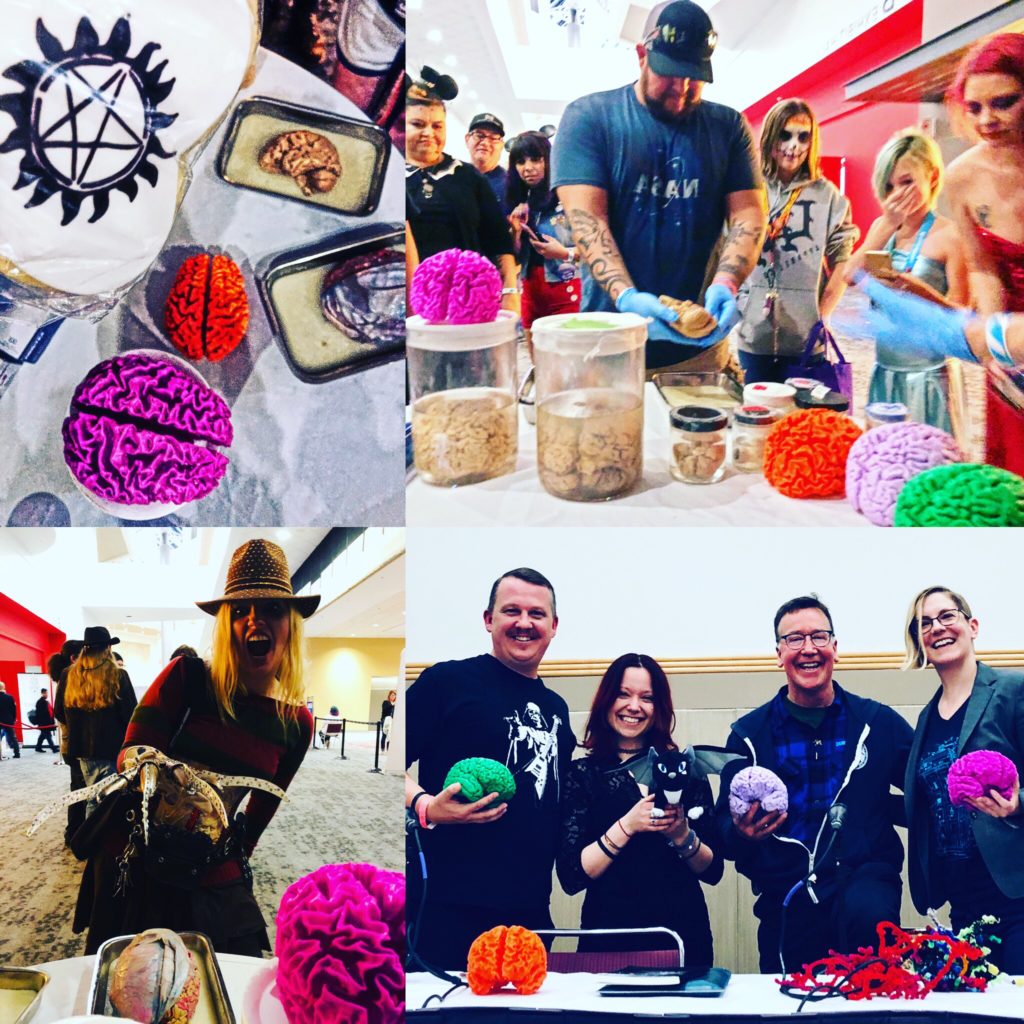
We did it! Learn more at this link…
Carry on my wayward son

WHERE: Oregon Convention Center, 777 NE Martin Luther King Jr Blvd Portland, OR 97232
WHEN: Saturday, February 23, 5:30pm
PANEL LOCATION: B110
BRAIN VIEWING LOCATION (after panel): C125
“Join tens of thousands of fans as they converge at Wizard World Comic Con Portland to celebrate the best in pop culture…”
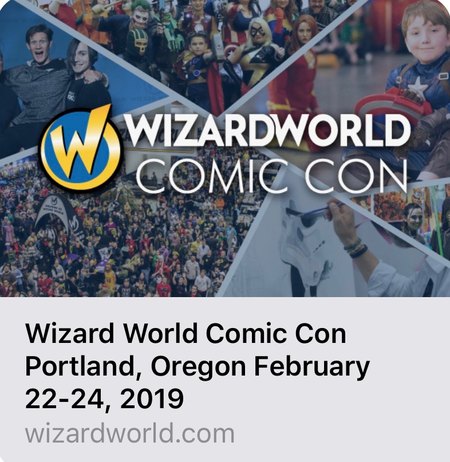
We’re excited to join the Wizard World Comic-Con panel on the “Psychology of Supernatural!”
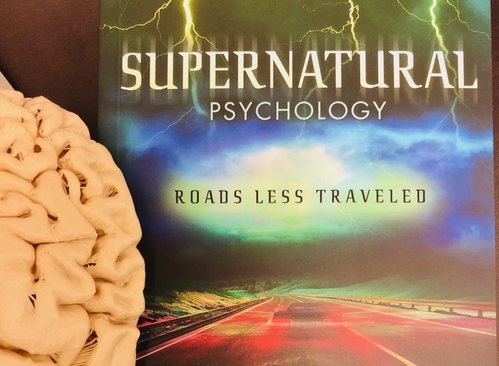
“Every urban legend has a source. A place where it all began…” – Hook Man (2005)
READ THE BOOK: Supernatural Psychology: Roads Less Traveled
Bill Griesar of NW Noggin, Portland State University and OHSU will join Erin Currie, Adjunct Assistant Professor at PSU and Consultant at MyPsychgeek, and Janina Scarlett, a clinical psychologist, author and originator of Superhero Therapy at Wizard World Comic-Con on Saturday, February 23!
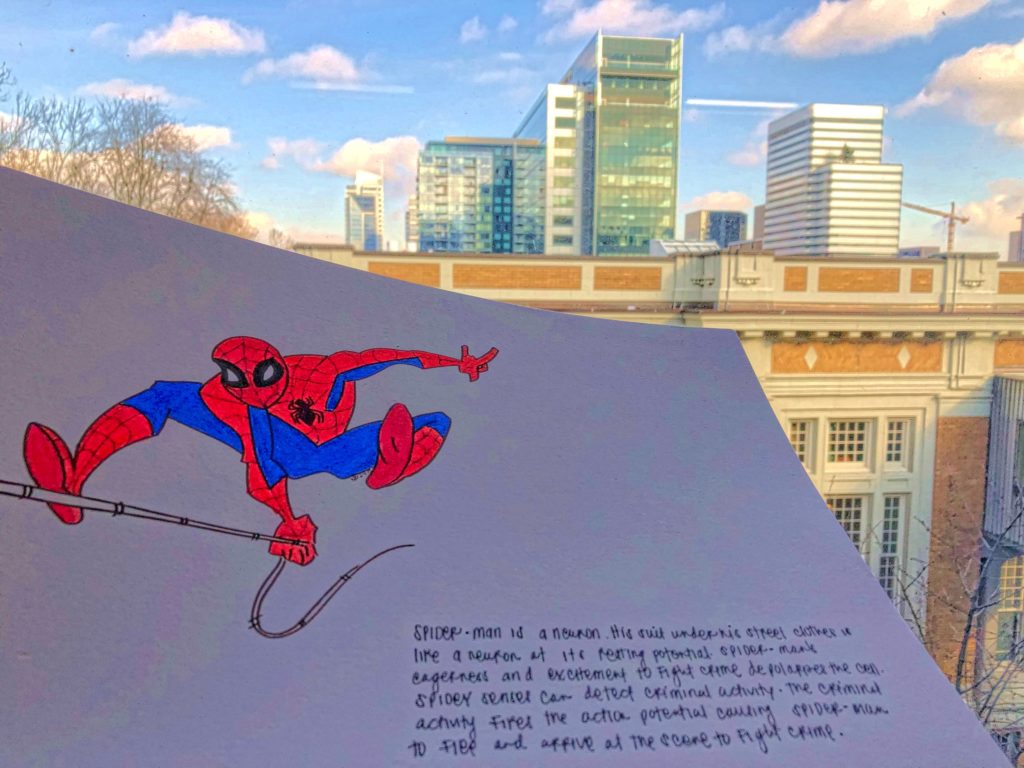
“Neurons are like Spiderman” -artwork by Portland State undergraduate Keys Le
LISTEN: Superhero Therapy Podcast E14: Psychology of Supernatural
We are excited (even depolarized!) to explore the psychological and neuroscience aspects of battling demons, perceiving ghosts, and the power of family support and storytelling to illuminate, guide and heal…

Perception and cognition depend on brains and bodies, and research is illuminating the rich inherent diversity in our unique, changeable and developing neural networks, and both the personal and shared experiences which shape who we are…
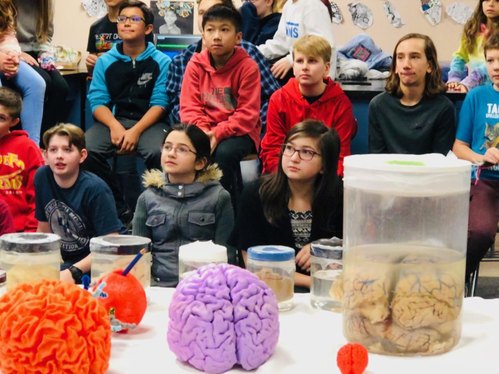
Your own thoughts, perceptions and experiences are genuine: so what’s going on..?
Grief, trauma, sleep disturbances, sleep paralysis, prosopagnosia, memory impairments, drug dependence, anxiety, PTSD, Capgras syndrome, panic disorder, temporal lobe epilepsy, macular degeneration, musical ear syndrome, Charles Bonnet, psychological biases and a host of other aspects of our remarkable brains and behavior may contribute to dramatic, “Supernatural” experiences.
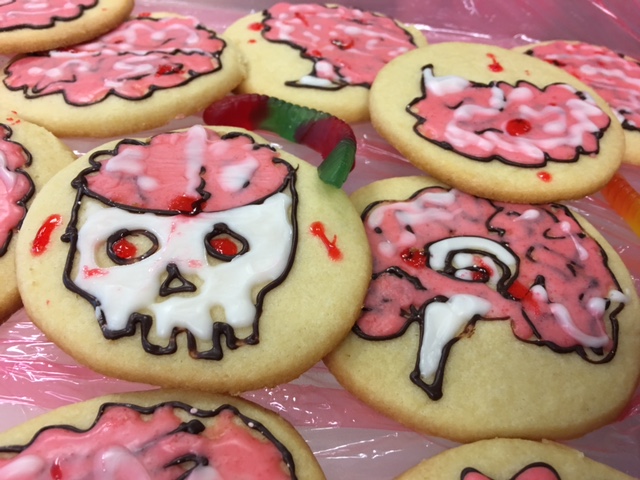
“I guess I was seeing things.” “That doesn’t mean it wasn’t real.”
Brothers Sam and Dean suffer multiple traumatic losses throughout 14 seasons of this popular show, and cope with their pain differently, in both adaptive and maladaptive ways. We all struggle to regulate our emotions, and Sam appears to aim for a strategy known as re-appraisal by talking situations out with other people, including his brother, to consider new approaches. Dean, in contrast, tends towards suppression and distraction through alcohol and one night stands – but also, of course, by fighting monsters (“My peace is helping people, working cases; that’s all I want to do”)…
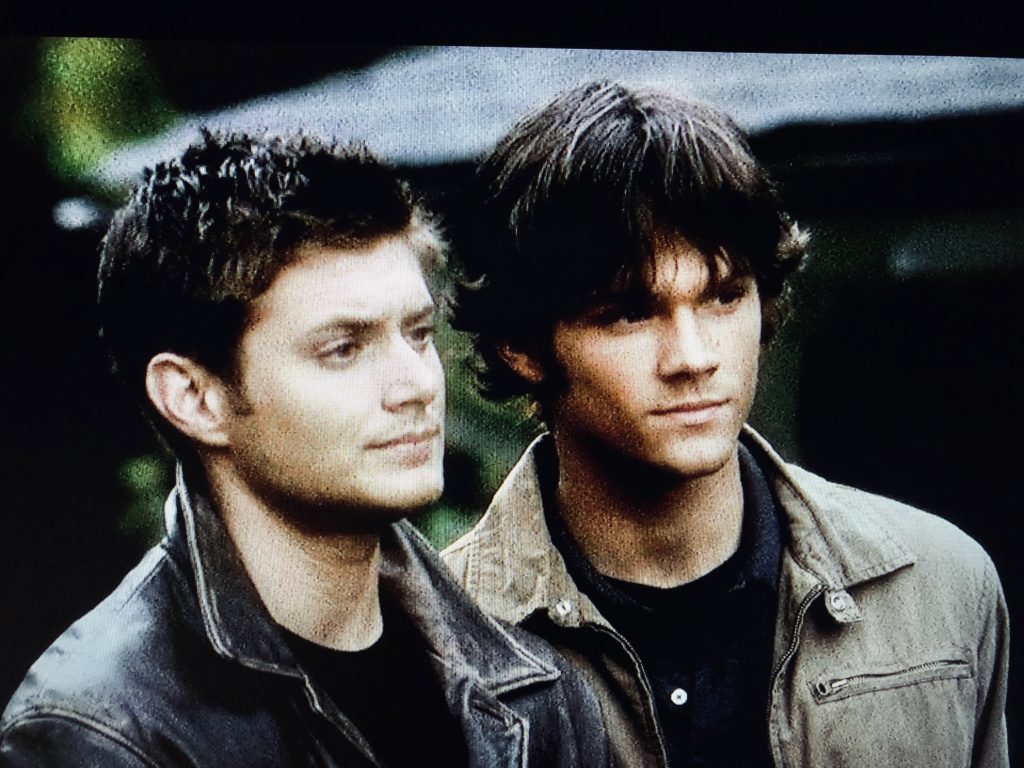
“You’re tailspinning man, and you refuse to talk about it and you won’t let me help you” -Sam to Dean, from Heart (season 2, episode 17)
Re-appraisal is usually a more effective strategy, partly because it prepares you to respond less fearfully or impulsively to (for example) a hex bag or a crossroads demon, rather than trying to clamp down on your emotions once a “fight or flight” response is in full swing.
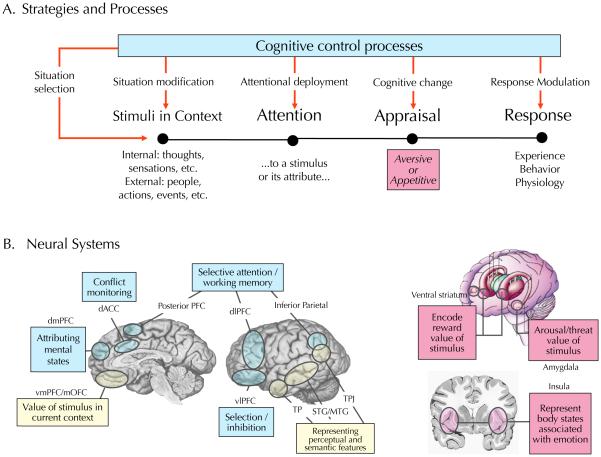
Cortical networks (indicated in blue) are involved in perceptual aspects of what you’re experiencing, attending to and deciding, while networks in red (involving both subcortical and cortical regions) drive faster, more impulsive, emotional responses…
There are moving, therapeutic conversations between the brothers, and between the brothers and other characters (including fellow Hunter Bobby Singer and the angel Castiel), involving efforts to remind each other of family loyalty and support, and consider options in more positive and effective ways.
Yet a quick, fear or anger-driven emotional impulsive response might be essential in many other circumstances encountered in the show. If a Wendigo is racing towards you at lightning speed, you want all the sympathetic nervous system activation you can get! And of course, a Rakshasa dressed as a clown is going to increase Sam’s heart rate and blood pressure (mine too!) no matter how much re-appraisal he’s done…
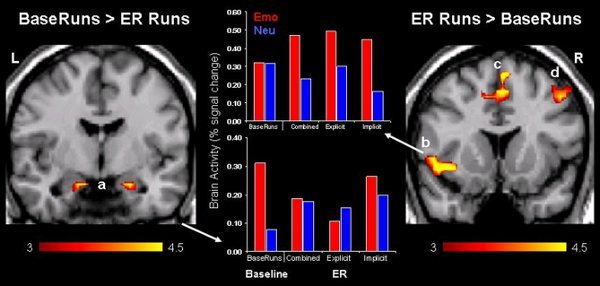
Efforts to regulate emotions through re-appraisal and suppression tend to decrease activity in a brain region known as the amygdala (a), while increasing the activity of networks in the frontal lobe, including the ventrolateral prefrontal cortex (PFC) (b), dorsolateral PFC (d), and medial PFC (c) that are critical for inhibiting impulsive emotional responses…
LEARN MORE: Brain Imaging Investigation of the Neural Correlates of Emotion Regulation
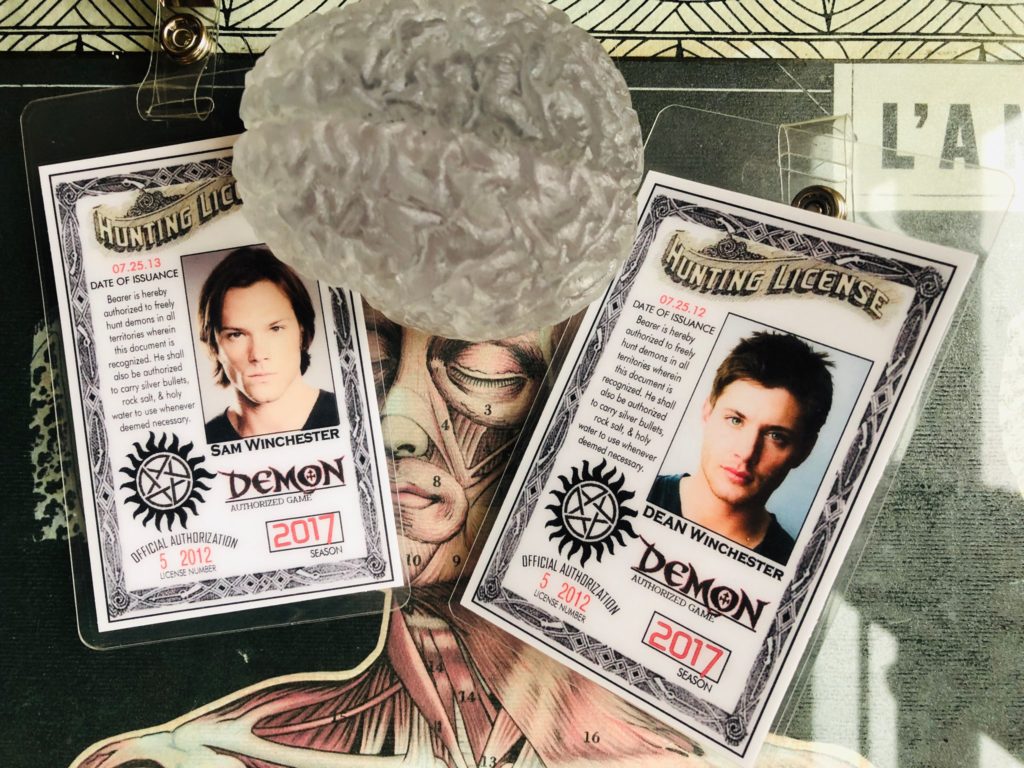
“And like you say, we’re family – and we don’t leave family behind” -Dean to Castiel
When we see character struggles on a celebrated TV show, it resonates with our own traumatic experiences. You are not alone in experiencing stress, and one way to cope is to find meaning – connection with others, loyalty to family, a life purpose, a valued and critical skill…
We’ve also referenced actor Jared Padelecki’s efforts to educate about depression in the past…
Changing Brain Waves of Depression
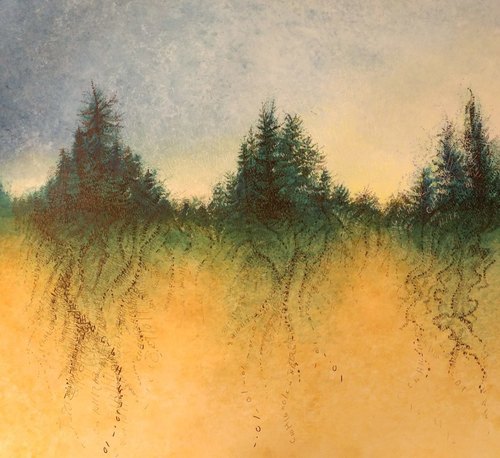
Breathe, by Pacific Northwest artist Sienna Morris
“Family’s everything you know” -Dean
LEARN MORE: Always Keep Fighting
So…which pipe cleaner neuron best embodies the Supernatural Devil..?
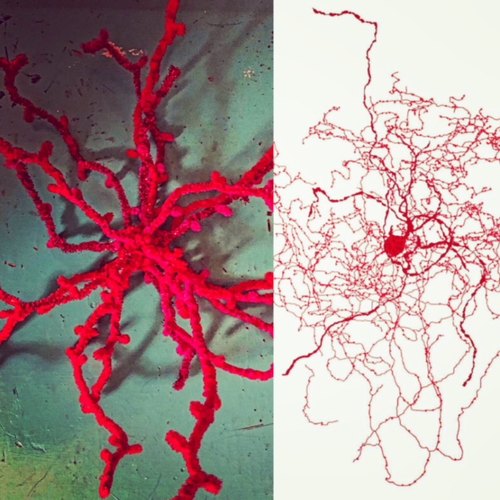
Liking the red of the rosehip neuron – but maybe something more dopaminergic…
LEARN MORE: Rosehip neurons in pipe cleaners!

Decided on a motivational dopaminergic neuron from the ventral tegmental area (VTA), which responds to stimuli predicting delivery of some reward…
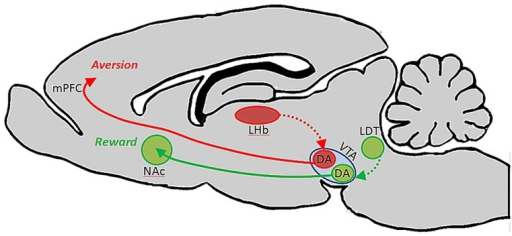
The Devil is in the dopamine…
LEARN MORE: New perspectives on catecholaminergic regulation of executive circuits
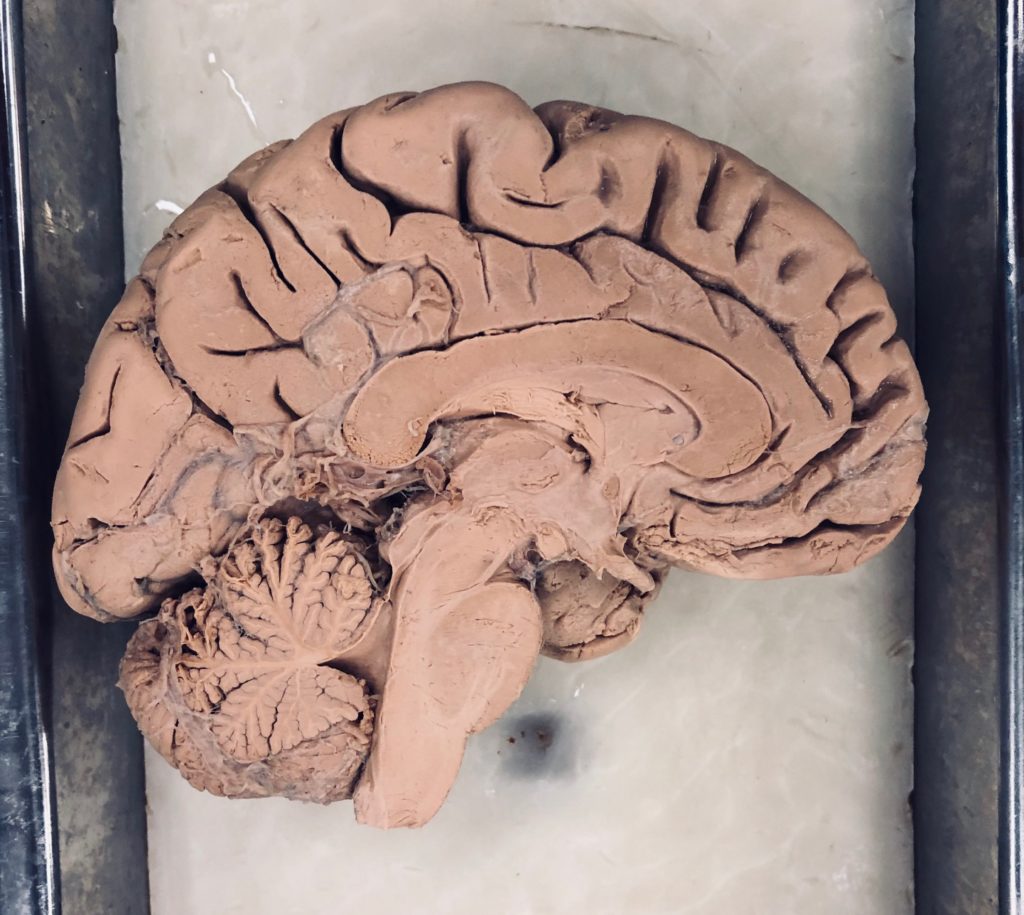
We’ll also have (extra!) human cerebrums available after the panel in C125 for anyone interested in asking more questions about the relationship between perception, cognition, behavior and our brains…
COMMITTED BRAIN WRANGLER PARTICIPANTS
Joey Seuferling, NW Noggin
Jeff Leake, Art Coordinator, NW Noggin
Andrew Stanley, PSU






